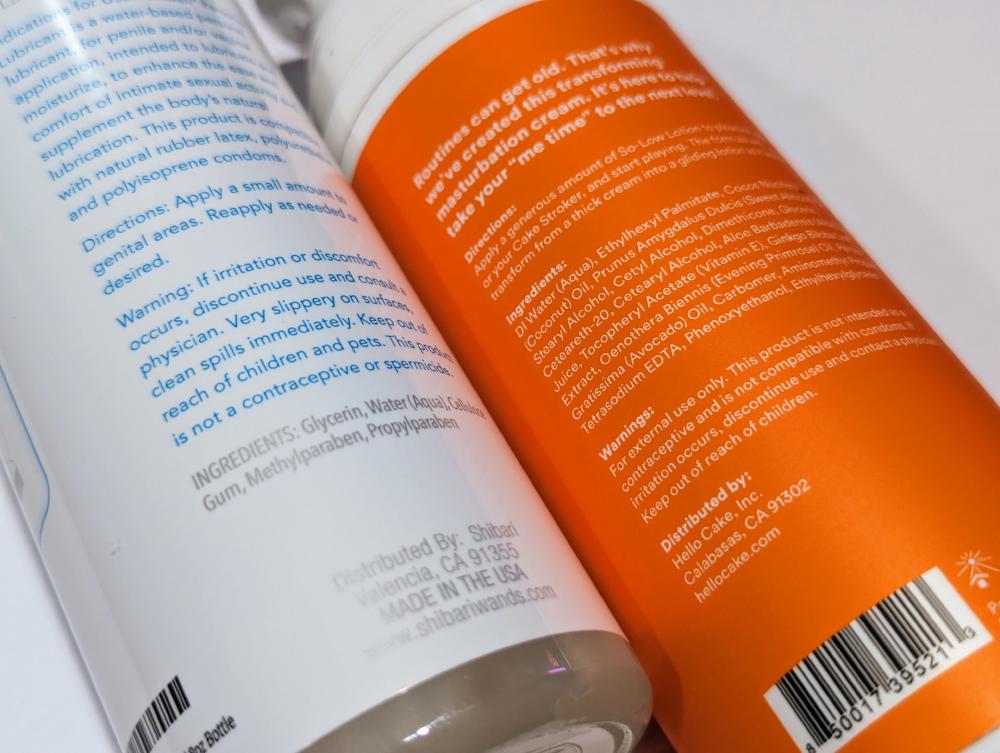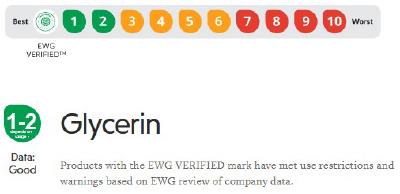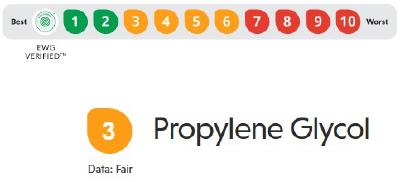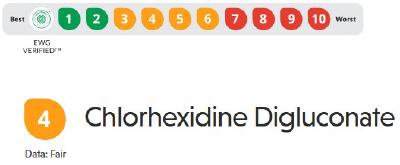Decoding the Lube Label
Protecting Your Intimate Moments
Published: November 17, 2023 (Updated: January 24, 2026)
We may make money when readers purchase items through our links. Disclosure

When it comes to intimate moments, the details matter. One often overlooked detail? The ingredients in your lubricant.
As we mentioned in our introduction to lubes post, lube really should be considered an essential for most intimate activities. Lube can significantly enhance both comfort and pleasure of both solo and partner activities. But have you ever wondered what exactly you are rubbing all over your junk? This article hopes to help you understand some of the ever growing list of ingredients that you might want to keep away from your most sensitive bits.
While most of these substances are not considered actively harmful, they all carry potential to cause some form of irritation or discomfort, especially in those with sensitive skin. So if you have sensitive skin, are prone to infections, or simply want to be more health conscious, knowing what lurks inside that bottle can empower you to make safer, and more informed choices. Given that these products come into contact with our body’s most delicate areas, being informed isn’t just about health—it’s about optimizing pleasure and avoiding discomfort.
TL;DR
Your well-being is our priority, so if you’re short on time, here are the key takeaways to ensure your intimate moments are safe and pleasurable.
- fewer ingredients are generally better
- avoid flavors and scents if you have sensitive skin
- any extra effects like warming/cooling/numbing increase the chances of irritation
- spot test any new products ahead of time to avoid ruining the moment (speaking from a friend’s experience)
Glycerin

Glycerin, or glycerol, is found in a lot of lubes, particularly water based, where it is added as a humectant to help retain moisture and to thicken the liquid. This effect is obviously a good thing down there which is why the FDA has approved the use of glycerin in personal lubricants. However, many manufacturers have used poor quality glycerin which can have imbalanced pH levels or too much sugar. These effects could potentially cause bacterial vaginosis or trigger a yeast infection. Some data also suggests that a buildup of glycerin could cause damage to the cell walls of the vagina or rectum and may also increase the transmission of sexually transmitted disease.
Despite these potential negative effects, a 2016 study says glycerin is “the most effective humectant” to increase hydration of your skin. Glycerin does not need to be strictly avoided, but make sure you trust the labelling of the package and if you are sensitive down there it may be best to avoid it all together. The Environment Working Group does give glycerin a good rating.
Nonoxynol-9

Nonoxynol-9 is a common ingredient in spermicidal lubricant where it is used to kill sperm. This can obviously be a desired effect but Nonoxynol-9 is not very selective and can also kill over bacteria, good and bad, that are present in the vagina. This overactive antibacterial effect can upset the balance of your vagina and make something like bacterial vaginosis more likely. Even if it does not cause an actual infection it can cause undesired irritation and inflammation. However, the Environment Working Group does give it a Fair rating, primarily due to limited study data available.
If you are looking for a spermicidal lubricant you may want to find another option or try doing a spot test on your skin before use. You should also be aware that many condoms come prepared with a spermicidal lube so they are worth double checking as well.
Propylene glycol

Propylene glycol is a multipurpose ingredient that can act as a humectant for retaining moisture, preservative, and several other functions. Many people avoid propylene glycol because it is commonly used as the base for deicing fluids and antifreeze. But the FDA considers it to be “generally recognized as safe” in food and cosmetics and the Environment Working Group gives it a “fair” rating, so the quantities used in lube should not harm your health. However, propylene glycol is known to cause skin irritation in a lot of people.
Chlorhexidine gluconate

Chlorhexidine gluconate is a common antibacterial that is mildly caustic, this can cause irritation of sensitive skin. However the Environmental Working Group rates Chlorhexidine as “fair” which means it should be safe for most people in the quantities used during sex. But if you have sensitive skin or are experiencing any dryness or redness, it may help to avoid lubes containing this.
Parabens
Parabens are a class of synthetic chemicals commonly added to foods and cosmetics as a preservative. Common parabens are methylparaben, ethylparaben, propylparaben, and butylparaben. While the US FDA currently believes that low levels of parabens are safe for use in cosmetics, newer studies have shown that levels may be accumulating in human bodies more than originally expected.
With the widespread use of parabens, some data is starting to suggest that they may interfere with hormone signaling within the body. Many important biological processes, such as menstruation, depend on correct levels of hormone signalling. Data also shows a potential negative effect on fertility and birth outcomes.
While currently considered safe (at least in low levels), there are plenty of options available that are paraben free.
Petroleum based products
There aren’t generally used in off the shelf lubes but are frequently used as alternatives in spontaneous encounters. In the shower and thinking of indulging your self in a little me time? Think twice before reaching for the baby oil or vaseline. These petroleum based products can become sticky and hang around for longer than you intend and provide a home for bacteria that can cause irritation or bacteria vaginosis. They can also alter the pH of the vagina which makes it easier for yeast infections or other irritating conditions to take hold.
Summary
Hopefully this list gave you a good starting point to understanding what is in your lube but it was by no means an exhaustive list of ingredients and new products are coming out with new ingredients all the time. Remember to prioritize your personal health by being an informed consumer and reading the ingredients before you buy. Given the potential impact of any irritation on your activities (planned or spontaneous), it’s a great idea to always try a new product on a small patch of skin before going all the way.
Your body deserves the best. Before your next intimate moment, take a moment to read the label. And for more insights and reviews on the safest and most effective lubes, keep exploring The Strawberry Patch.


